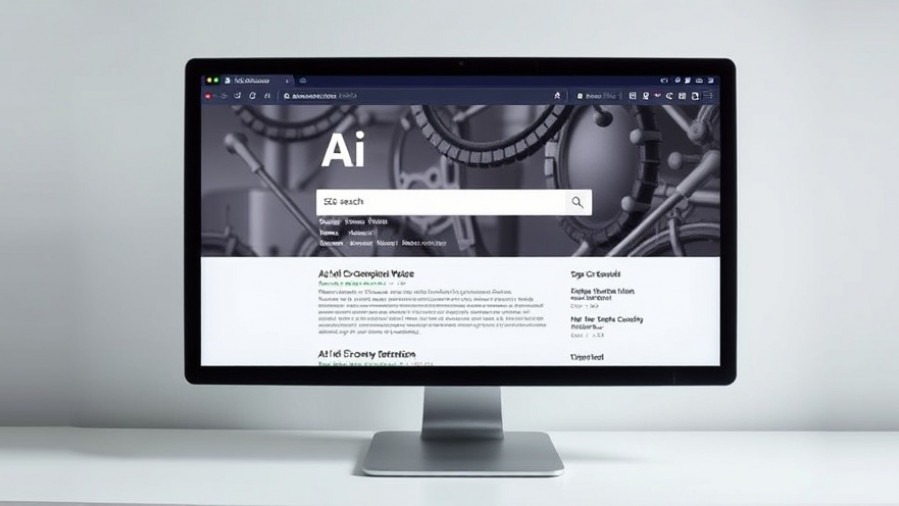
Revolutionizing Browsing: OpenAI's Game-Changer
OpenAI has officially unveiled ChatGPT Atlas, an innovative AI-powered web browser that aims to redefine how we engage with the internet. Available for macOS, this sleek browser embeds ChatGPT within a sidebar, allowing for unique features such as content summarization, product comparison, and data analysis from any website. Furthermore, through its 'Agent Mode', the AI can autonomously navigate websites and perform tasks, such as shopping, all while maintaining user control.
The Browser Wars Intensify
OpenAI's entrance into the browser market poses a significant challenge to Google Chrome, currently holding a staggering 71% of market share. Following the announcement, Alphabet’s stock saw a decline of nearly 5%, indicating investor concern over the intensifying competition. Market analyst Paul Roetzer noted that for OpenAI to penetrate this market, it needs to either offer a revolutionary feature or find a niche that Chrome does not dominate. This competition may compel Google to accelerate enhancements in its browser technologies as both giants adapt to shifting user behaviors in an increasingly AI-driven environment.
Understanding Agent Mode: Shifting Dynamics
The ‘Agent Mode’ of ChatGPT Atlas is set to introduce a transformative shift in how we relate to technology. This feature can perform tasks on behalf of users, potentially leading to 'agent-to-agent commerce.' Roetzer emphasized the need for brands to adapt to changing consumer interactions, where AI agents – rather than humans – may dictate brand engagement and purchase decisions.
Challenges Ahead: The Transition to Atlas
Despite its promise, immediate utility concerns arise for current browser users. Roetzer himself admitted a hesitancy to transition from established workflows within Chrome, citing difficulties in finding personal use cases that justify a switch. Other experts, like AI researcher Simon Willison, have echoed this sentiment, highlighting the initial clunkiness of the tool resembling novice computer interactions.
The Future of Browsing: A New Paradigm?
As OpenAI’s Atlas browser continues its rollout, its long-term success depends on its ability to solidify its place among established competitors while genuinely enhancing user experience. The idea of integrating AI deeply within our browsing practices, transitioning from URL bars to chatbot interfaces, may sound revolutionary; however, this vision hinges on overcoming significant user inertia and improving the functionality and reliability of the AI's capabilities.
Wider Implications for Search and Content
The launch of Atlas coincides with a notable trend where users are increasingly turning to AI for information retrieval over traditional search engines. As findings reveal that up to 74% of younger users use AI for information, OpenAI’s strategy could dramatically reshape digital marketing and SEO tactics. Brands will need to adapt to a landscape where AI tools not only compete for users' attention but also reshape user engagement strategies.
This pivotal shift represents not just a challenge but an opportunity for brands to rethink their digital presence and strategies. The integration of AI into the everyday browsing experience promises not only greater efficiency but also new avenues for customer interaction and engagement.
 Add Row
Add Row  Add
Add 




Write A Comment